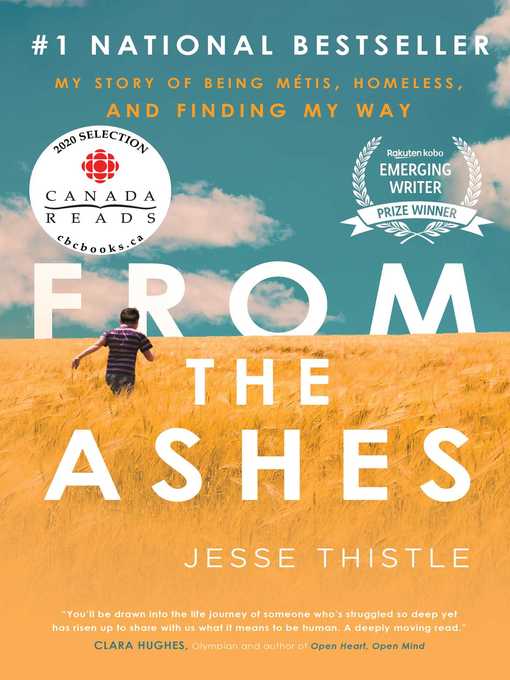
From the Ashes
My Story of Being Métis, Homeless, and Finding My Way
کتاب های مرتبط
- اطلاعات
- نقد و بررسی
- دیدگاه کاربران
نقد و بررسی

July 12, 2019
First-time author Thistle (Métis studies, York Univ., Ont.) presents a gritty memoir recounting the devastating long-term effects of childhood abandonment. Raised by his grandparents after the end of his parents' abusive relationship and his father's disappearance, the author struggled with issues of identity and anger, falling into a life of drug addiction that left him homeless, ill, and estranged from family and friends. Unsparing in his depiction of life on the streets and the desperate measures and dangerous behavior his addiction drove him to engage in, he makes a clear connection between his destructive lifestyle and the pain, fear, and loneliness of his past. Similarly, Thistle credits the supportive community and educational opportunities he found in rehab, as well as a reclamation of his identity through a reconnection with his Métis ancestry, as essential components of his eventual triumph over addiction and his reconciliation with his mother. VERDICT Although Thistle's memoir does not deal extensively with issues of native identity and oppression, the theme of estrangement is powerfully portrayed in what is ultimately a story of courage and resilience certain to strike a chord with readers from many backgrounds.--Sara Shreve, Newton, KS
Copyright 2019 Library Journal, LLC Used with permission.

July 1, 2019
Growing up in Saskatchewan, Thistle and his two brothers fended for themselves from a young age, after their mother fled their abusive father and their father abandoned them. After a brief but terrifying stint in foster care, they moved in with their grandparents. The boys all start drinking young, but Thistle, haunted by his addict father, quickly escalates his use, steals to support his habits, and ultimately gets kicked out of the house. Living on the streets in between jail stays, he hits rock bottom and realizes he must change. His powerful and moving memoir is also a scathing indictment of the treatment of Indigenous people and the myriad ways systems fail them. It can be hard to read, not only because of how terrible things get for Thistle, but also in its structure: brief essay-like snippets that often lack resolution, true to the nature of memory and time lost to addiction. Hand this to readers seeking a follow-up to Terese Marie Mailhot's memoir Heart Berries (2018) or Tommy Orange's novel There, There (2018).(Reprinted with permission of Booklist, copyright 2019, American Library Association.)

Starred review from May 10, 2021
Thistle traces his path from neglected child, then homeless addict, to lauded academic in his powerful debut. Born in 1976, he grew up in Saskatchewan in a volatile household after his mother left him and his older brothers in the care of their alcoholic father. “ brash troublemaker,” Thistle struggled in his studies, and after high school became addicted to alcohol and crack and ended up on the streets of Vancouver, where he’d “never seen such squalor.” The sections about this time are particularly grim, including a startling depiction of Thistle being stabbed in the face. Scarred both physically and mentally, Thistle at one point was so desperate that he attempted to rob a store by pretending that a submarine sandwich was a gun (“I thought, This has got to be the worst moment of my life”). After calling the cops on himself, he went to jail and eventually got clean in rehab. In his mid-30s, he became a student at Toronto’s York University where he now teaches Métis studies. Thistle’s judicious use of his own poetry between chapters captures his deep suffering (“i swill back the pain; it burns and it belches rage and despair”) and underscores how he ended up one of the lucky few to emerge from what he endured. Readers will be gripped. (June)Correction: An earlier version of this review misstated that the author was at one point addicted to heroin.

























دیدگاه کاربران